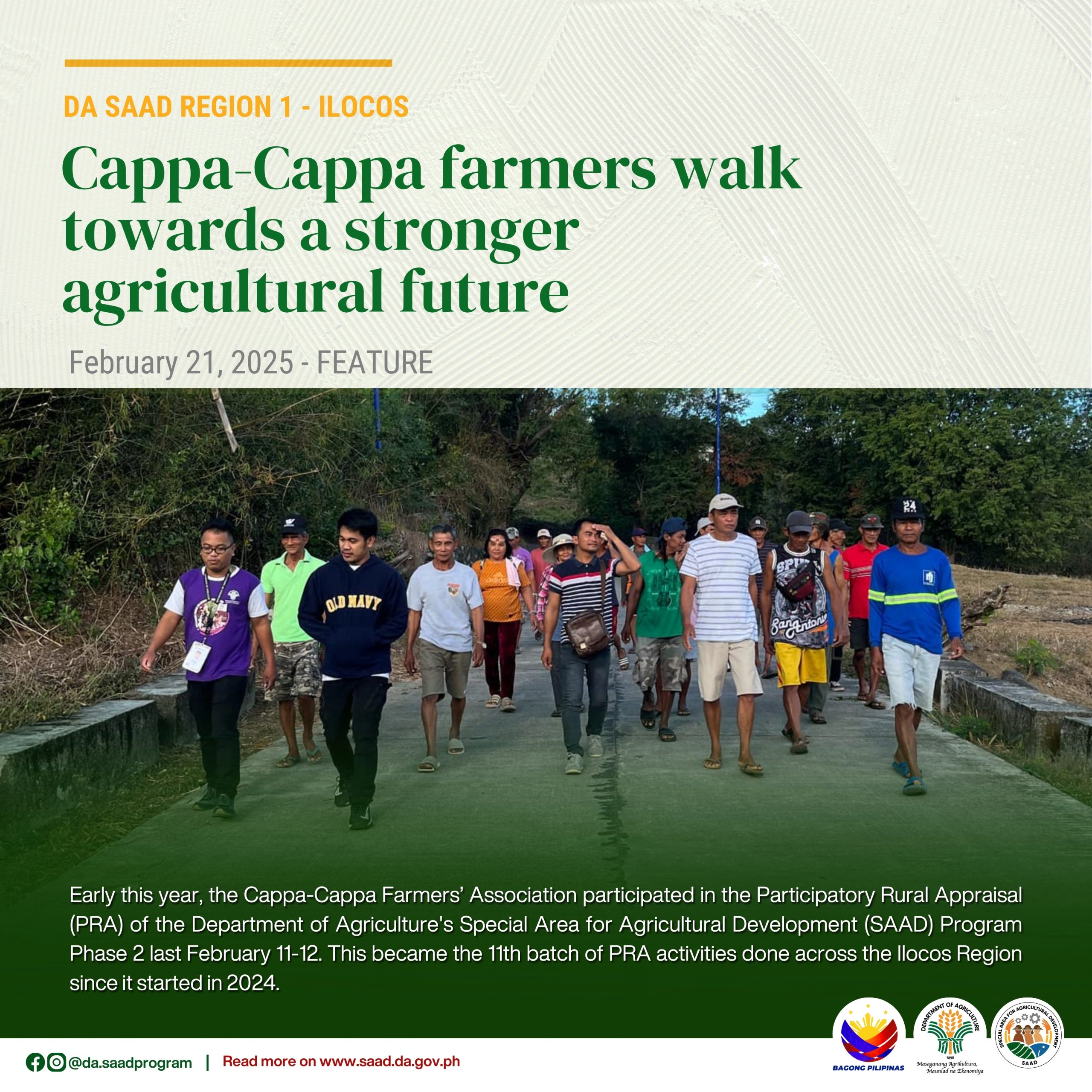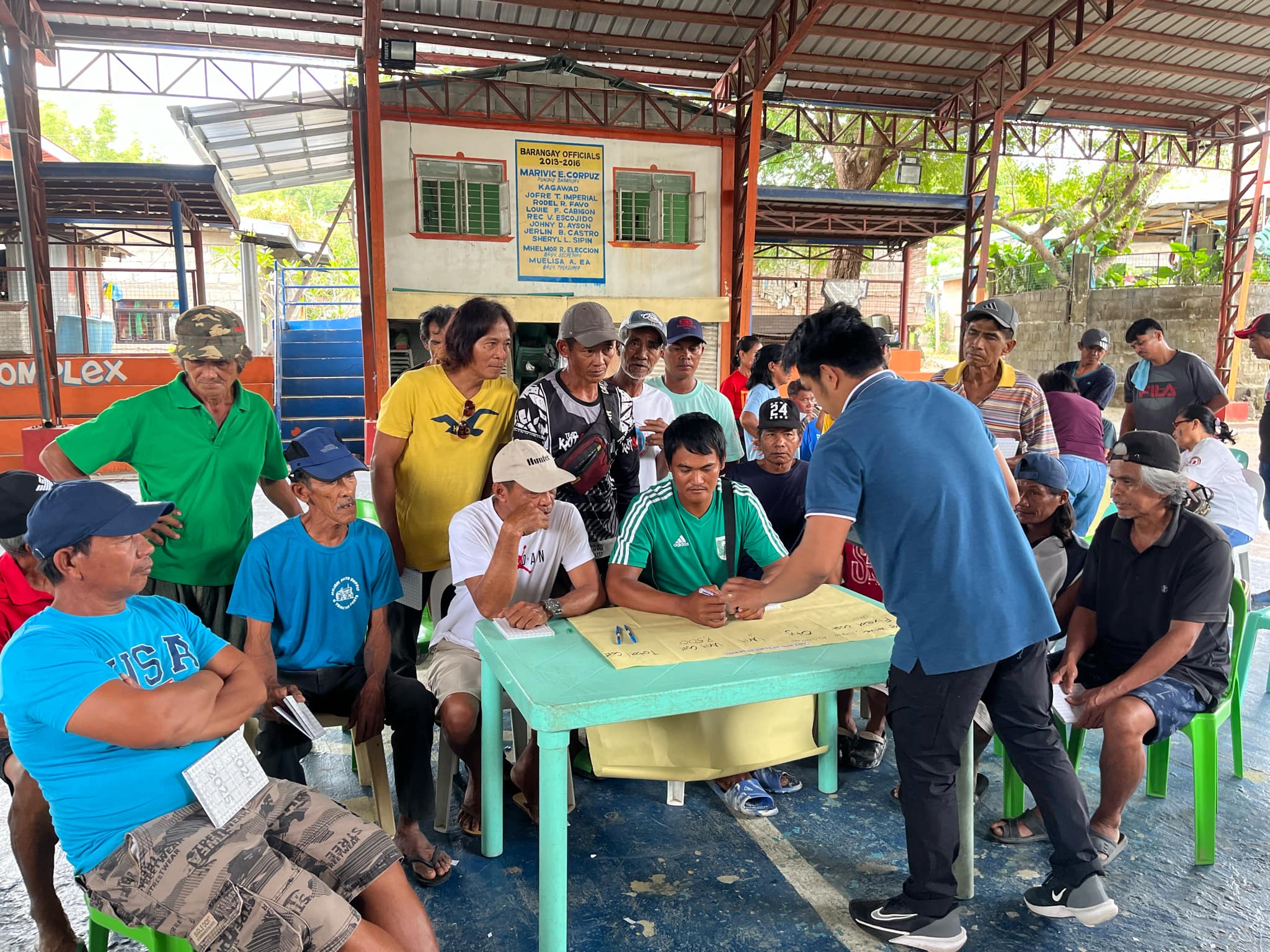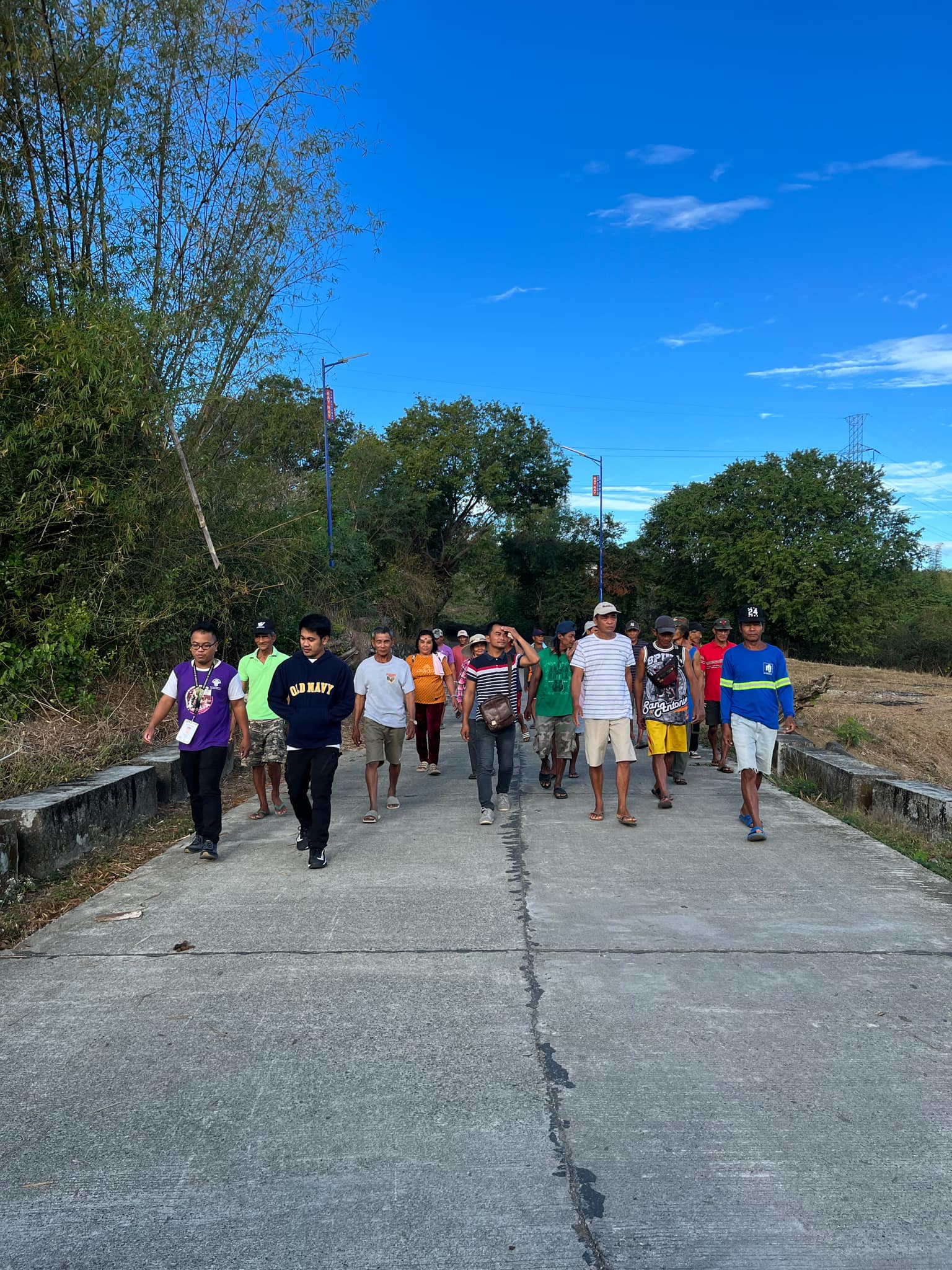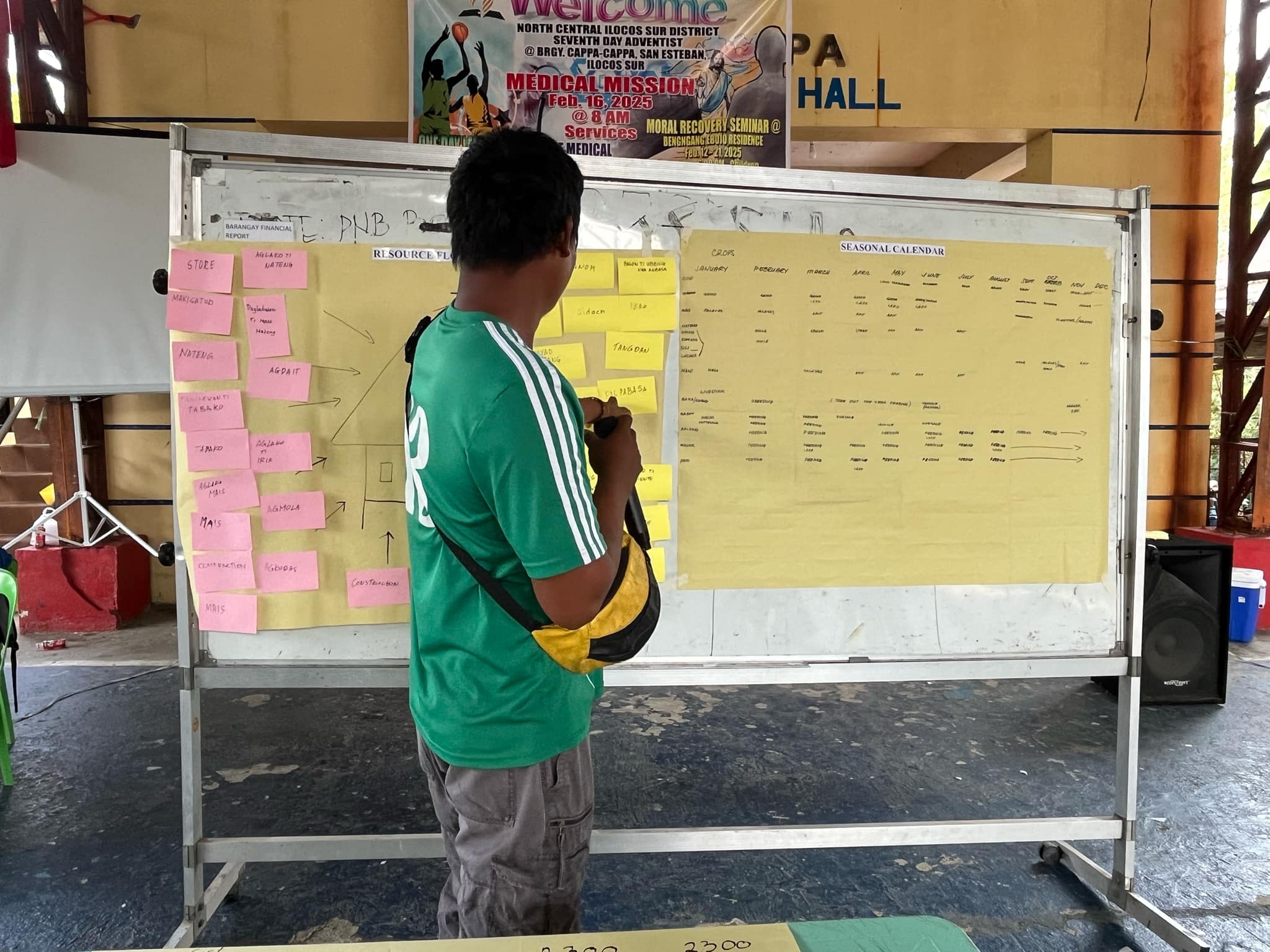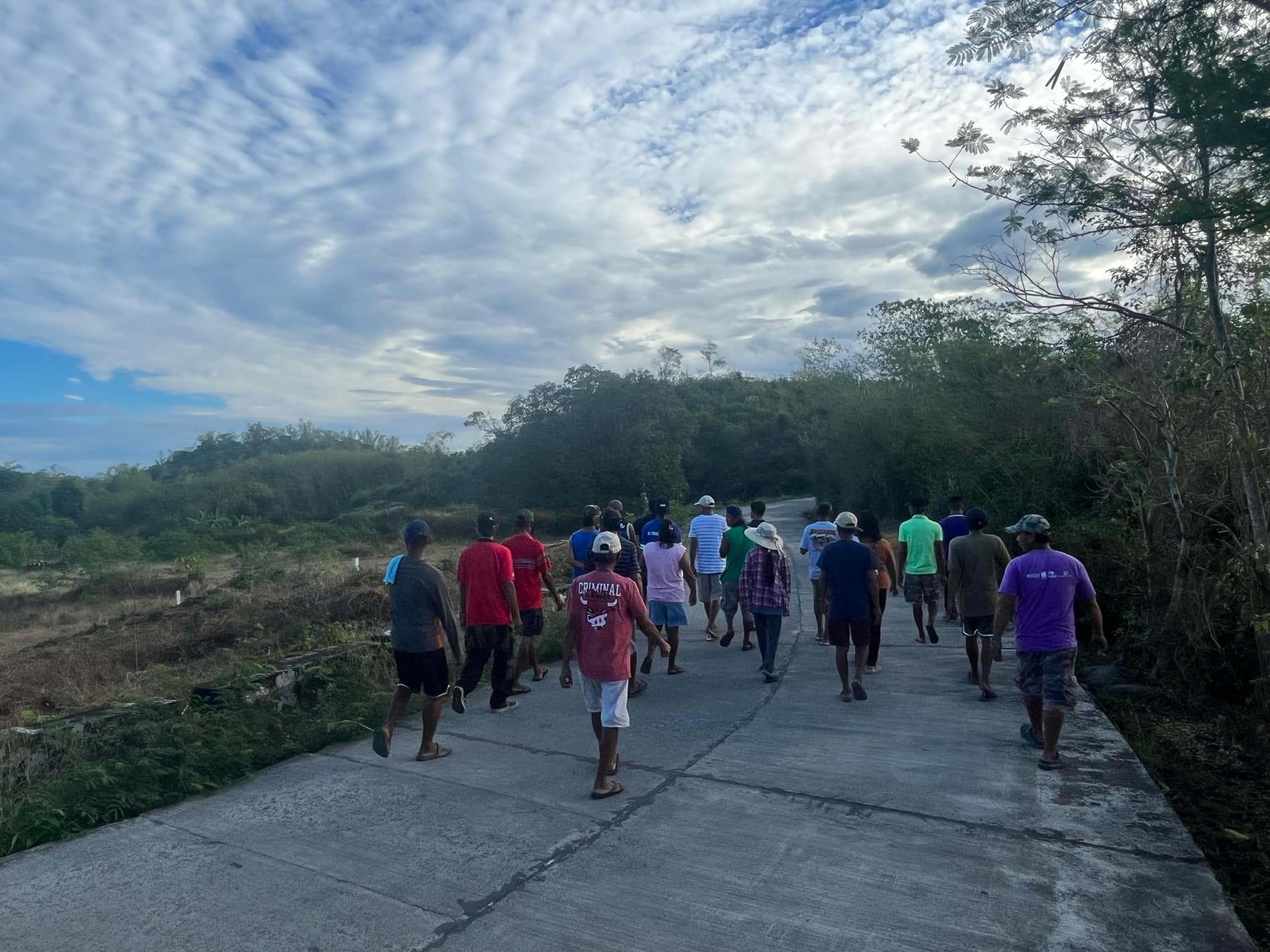Nestled in the lowlands of San Esteban, Ilocos Sur, Barangay Cappa-Cappa is a community deeply rooted in agriculture. Behind its fertile fields and rich vegetation lies the heart of its people – their farmlands, their traditions, and their collective efforts to build a sustainable future.
The name Cappa-Cappa derives from the Kapak plant, a rare flowering species once plentiful in the area. Elders recount that an old man first identified the plant, and the community subsequently adopted its name, which evolved into the Cappa-Cappa known today. Much like the resilient Kapak plant, the community continues to thrive, adapt, and preserve its heritage.
Early this year, the Cappa-Cappa Farmers’ Association participated in the Participatory Rural Appraisal (PRA) of the Department of Agriculture’s Special Area for Agricultural Development (SAAD) Program Phase 2 last February 11-12. This became the 11th batch of PRA activities done across the Ilocos Region since it started in 2024.
The PRA serves beyond a simple assessment; it is a collaborative platform where farmers, local government units (LGUs), and agricultural experts work together to develop sustainable solutions. Through close collaboration with the Municipal Agriculture Office (MAO), farmers gain direct access to expert guidance and government support, ensuring their agricultural plans are not only farmer-driven but also aligned with broader development initiatives.
The first day of the PRA was dedicated to participatory activities designed to help farmers analyze their agricultural environment. Using tools such as Problem Identification, Strengths, Weaknesses, Opportunities, and Threats (SWOT) Matrix, Resource Flow, and Institutional Diagrams, they systematically mapped out the strengths, weaknesses, opportunities, and threats inherent in their farming practices.
Engineers Joshua T. Peduca and Christian G. Corpuz guided the discussions to the 42 farmers, assisting them in pinpointing essential resources and institutional connections that could bolster their farming systems.
The afternoon session delved into Timeline and Trend Analysis, Seasonal Calendar, and Cost and Return Analysis, enabling farmers to examine historical shifts in farming practices, seasonal variations in production, and financial considerations for enhancing profitability.
On the second day, under the warm morning light, farmers participated in the Village Walk, an activity designed to provide a firsthand assessment of their agricultural environment. As they progressed to their lowland farmlands, the farmers looked beyond the abundant vegetation and ripening crops.
Soil fertility, water accessibility, pest management, and land utilization became key discussion points. Some spoke of the gradual degradation of soil quality, others raised concerns about inconsistent water supply, while many reflected on the evolving climate and its impact on crop production.
“Strong cooperation is the cornerstone of a successful farmers’ association. If we unite and manage our resources effectively, this initiative will empower us to grow and create enduring opportunities for our community,” said Barangay Captain Villamor EA.
The Village Walk fostered a dialogue between the farmers and their land. The SAAD Program and the LGU played a pivotal role in bridging the gap between observations and actionable solutions, ensuring that farmers have access to the necessary resources and technical support.
“This is not the culmination of a process, but the commencement of something significant. The data we have collected will inform future programs, and we are committed to ensuring that the solutions we implement are practical, sustainable, and advantageous to every farmer in Cappa-Cappa,” affirmed Municipal Agriculturist Mhayard Zulueta Estome.
With the successful completion of the two-day PRA, the farmers of Cappa-Cappa are now equipped with fresh insights and a renewed sense of purpose.
“We are thankful for this opportunity to enhance our farming community. I urge my fellow farmers to take this endeavor seriously and ensure that the support we receive is utilized effectively,” emphasized Cappa-Cappa FA President Loreto E. Espanto. ###
